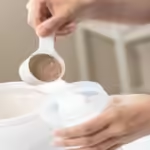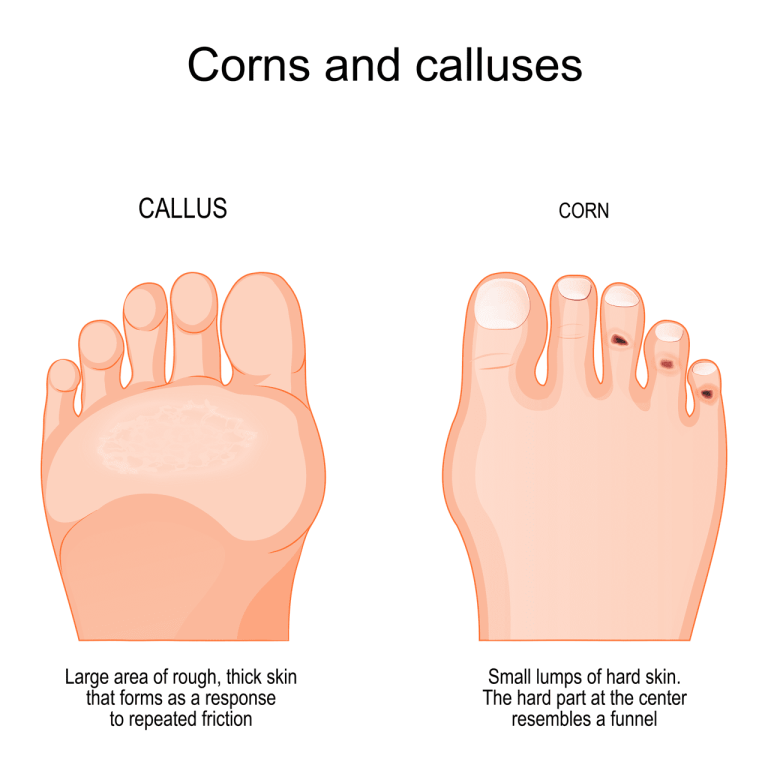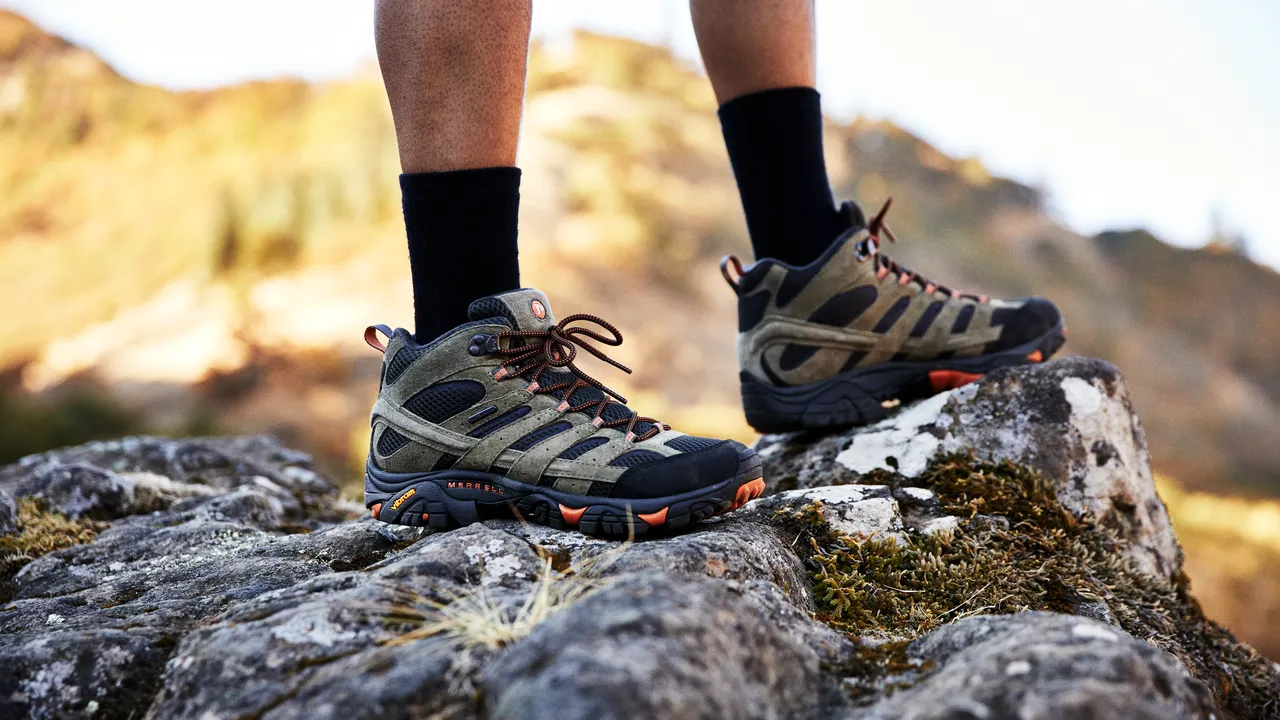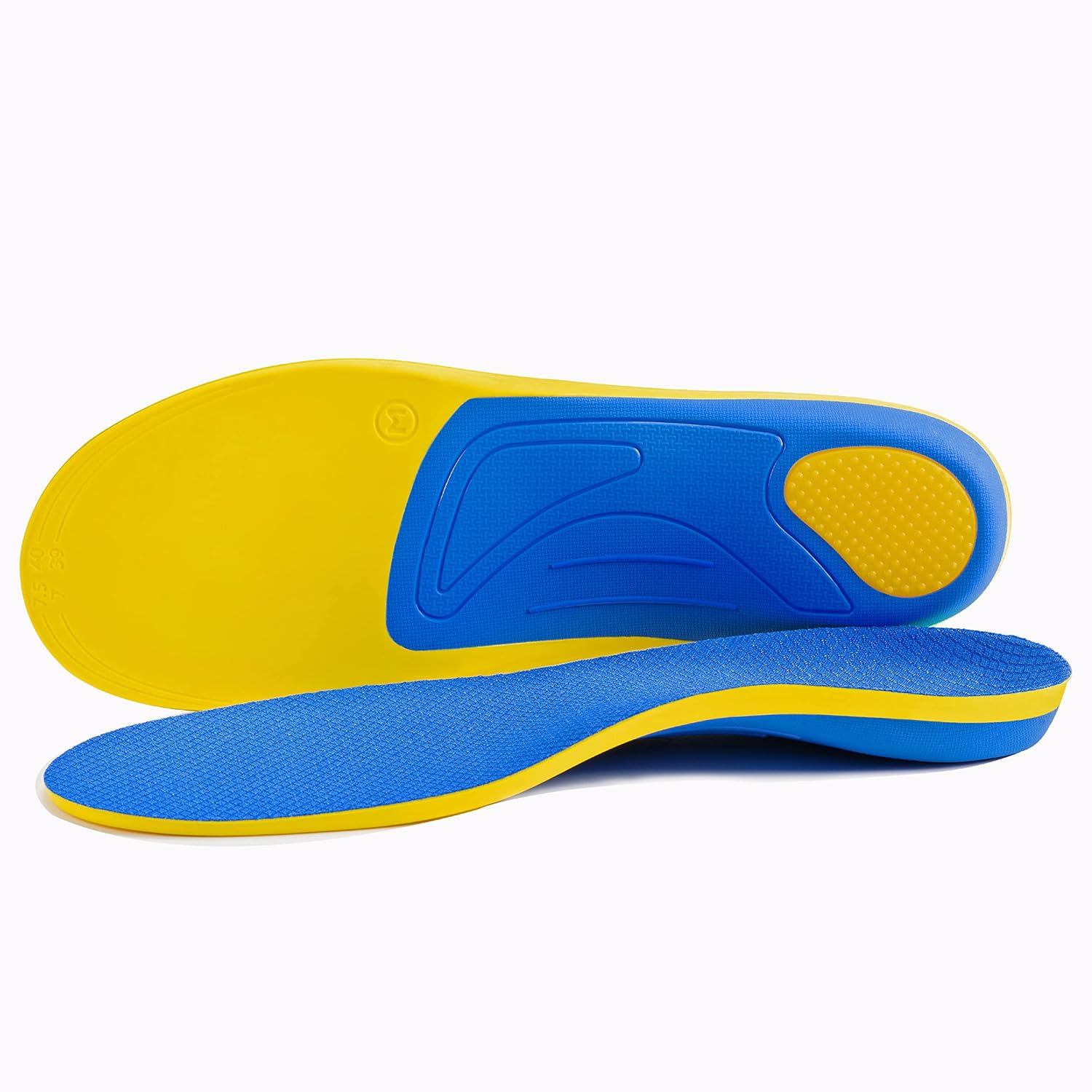Dive into our comprehensive guide on calluses and corns prevention and treatment. Discover expert tips for healthier feet and a more comfortable lifestyle. Start your journey to foot health mastery today!
Introduction
Welcome to our ultimate guide on understanding, preventing, and treating calluses and corns. These unsung heroes of your feet play a crucial role in your body’s defense against friction and pressure but can become a source of discomfort if not managed properly. Whether you’re an athlete, someone with a demanding job, or just looking to take better care of your feet, our insights will help you maintain healthy, comfortable feet in any situation.
Table of Contents
Exploring the World of Calluses: The Unsung Heroes of Your Feet
Calluses form as the body’s natural defense against ongoing friction or pressure, appearing as yellowish or grayish hardened skin patches, commonly found on the feet’s soles or the hands’ palms. While they’re mostly harmless, calluses can lead to discomfort or pain, especially for people with diabetes or poor circulation. Understanding how calluses develop is key to managing and preventing them effectively, ensuring they remain protectors rather than becoming sources of pain.
The Challenge of Corns: Small Yet Troublesome
Corns are similar to calluses but have distinct features and cause different levels of discomfort. These small, hardened skin patches often arise in high-pressure or friction areas, like between toes or on foot’s bony areas. Corns are characterized by a central core, which can be either hard or soft, and this core can cause significant pain by pressing on the nerves below.

Understanding the Causes and Risk Factors

Several factors contribute to the development of calluses and corns, including footwear choices and occupational risks. Identifying these factors is essential for prevention and effective management:
Friction and Pressure
The main reasons for callus and corn formation, where repetitive rubbing or pressure triggers the skin’s defense mechanism, leading to skin thickening.
Footwear
Shoes that don’t fit properly, lack cushioning, or force the feet into unnatural positions can lead to problems.
Occupational Hazards
Jobs requiring repetitive hand or foot movements can increase callus risk.
Foot Deformities and Gait Abnormalities
Conditions like hammertoes or bunions, along with irregular walking, can lead to uneven weight distribution and more calluses and corns.
Dry Skin
Skin lacking moisture is more vulnerable to damage from friction and pressure.
Prevention and Self-Care Strategies
Implementing self-care measures can greatly lower the risk of calluses and corns:
Opt for Proper Footwear
Select shoes that fit well and provide sufficient support and cushioning. Avoid shoes that compress the toes or place too much pressure on any foot area.
Keep Skin Moisturized
Keeping the skin moisturized makes it more resilient and less likely to be damaged.
Employ Protective Padding
Cushioning pads can protect vulnerable areas from pressure and friction.
Maintain Proper Toenail Length
Keeping toenails at the right length can prevent excessive pressure that might cause corns.
Effective Treatment Strategies
When prevention isn’t enough, several treatments can alleviate calluses and corns’ discomfort and appearance:
Moisturizing and Gentle Exfoliation
Regularly moisturizing and carefully removing dead skin can help diminish calluses and corns.
Pumice Stone or Foot File
These tools can effectively reduce thickened skin when used with care to avoid harming healthy skin.
Salicylic Acid Pads
These over-the-counter remedies can soften and gradually eliminate corns but should be used cautiously, particularly by those with sensitive skin or health conditions.
Orthotic Inserts
Custom or store-bought orthotics can help redistribute foot pressure, relieving areas prone to calluses and corns.
Choosing the Right Footwear and Supports for Callus and Corn Prevention

Selecting appropriate footwear and supports is crucial for those susceptible to calluses and corns. Here’s what to look for:
Shoes with Supportive Features
Opt for shoes that have soft linings, are designed to support the foot well, and have cushioned soles to reduce friction and pressure.
Wide Toe Boxes
Shoes with plenty of space in the toe area help avoid crowding, reducing pressure points and the risk of calluses.
Arch Supports
Using arch supports that provide shock absorption and help control pronation can address foot alignment issues, lowering the chance of developing calluses.
Understanding the nuances of calluses and corns and adopting specific prevention and treatment strategies can lead to healthier feet and a more comfortable lifestyle. While self-care is beneficial, it’s important to consult a professional for ongoing or painful conditions to ensure you receive the right care.
Top Insole Recommendation for Calluses and Corns
For those struggling with calluses and corns, the Atlas Arch Support insoles are a standout choice for relief and prevention. Here’s why they might be the perfect fit for your needs:

Enhanced Arch Support for Pressure Distribution
Atlas insoles are designed to provide exceptional support to the arch, crucial for evenly distributing body weight across the foot. This helps prevent calluses and corns by reducing pressure and friction in specific areas.
Semi-Rigid TPU Shell for Optimal Foot Alignment
The semi-rigid thermoplastic urethane (TPU) shell in Atlas insoles offers the ideal mix of flexibility and support, ensuring your feet are correctly aligned. Proper alignment is key to avoiding calluses and corns caused by abnormal walking patterns or uneven weight distribution.
Superior Gel Heel Cushioning for Enhanced Comfort
With gel cushioning in the heel, Atlas insoles offer outstanding shock absorption, especially beneficial for the heel where corns often form. This feature reduces pressure and discomfort, enhancing comfort during activities like walking and standing.
Tailored for Active Lifestyles
Atlas insoles cater to those with active lifestyles, providing comfort and durability to meet the demands of daily foot stress. They’re an excellent option for maintaining foot health amidst a busy schedule.
Promoting Overall Foot Health
Regular use of Atlas Arch Support insoles supports overall foot health by ensuring the necessary support and proper alignment. This proactive approach not only addresses existing issues but also helps prevent future problems, keeping your feet comfortable and pain-free.
Versatile and User-Friendly
Atlas insoles are compatible with various shoe types and are simple to insert and remove, making them a convenient choice for improving foot comfort and health across different activities and preferences.
Atlas Arch Support insoles offer a comprehensive solution for managing calluses and corns, addressing root causes while providing immediate and long-term benefits. For persistent foot issues, consulting a healthcare professional for personalized care is advisable. Prioritizing foot health is essential for a pain-free, active lifestyle.
FAQ Section
Q1: What causes calluses and corns? A1: Calluses and corns are primarily caused by friction and pressure on the skin, often from ill-fitting shoes or repetitive activities that stress the feet and hands.
Q2: How can I prevent calluses and corns? A2: Prevention strategies include choosing well-fitting shoes with adequate cushioning, keeping your skin moisturized, and using protective padding in high-risk areas.
Q3: What are some effective treatments for calluses and corns? A3: Treatments include moisturizing and gently exfoliating the affected areas, using salicylic acid pads for corns, and considering orthotic inserts to redistribute foot pressure.
Q4: Why is choosing the right footwear important for preventing calluses and corns? A4: Proper footwear supports the foot, reduces pressure points, and minimizes friction, significantly lowering the risk of developing calluses and corns.
Q5: Can calluses and corns be a sign of a more serious condition? A5: While they are usually harmless, persistent or painful calluses and corns should be evaluated by a healthcare professional, especially for individuals with diabetes or poor circulation.
Conclusion
Understanding the nuances of calluses and corns is the first step towards healthier feet and a more comfortable lifestyle. By adopting specific prevention and treatment strategies, you can ensure your feet remain protected and pain-free. Remember, while self-care is beneficial, consulting a professional for ongoing or painful conditions is crucial to receiving the right care. Prioritize your foot health today for a happier, more active tomorrow.









